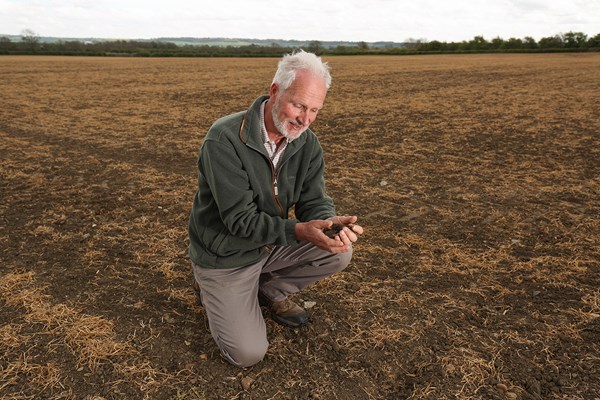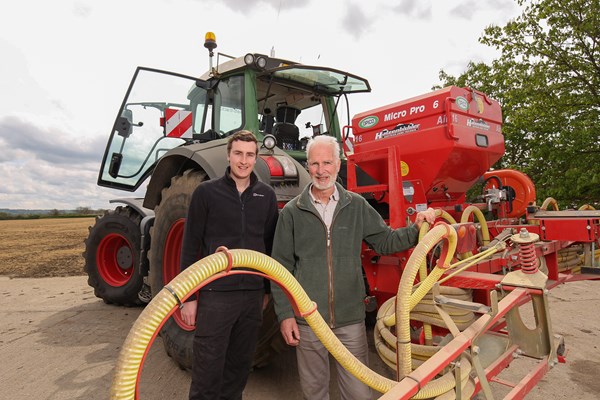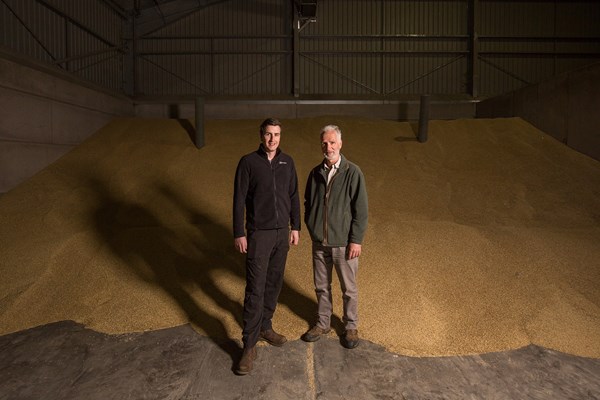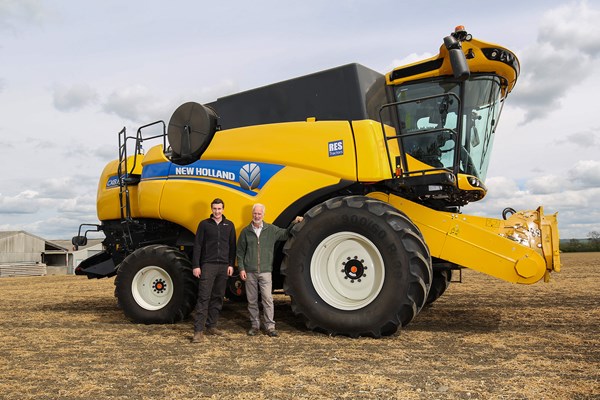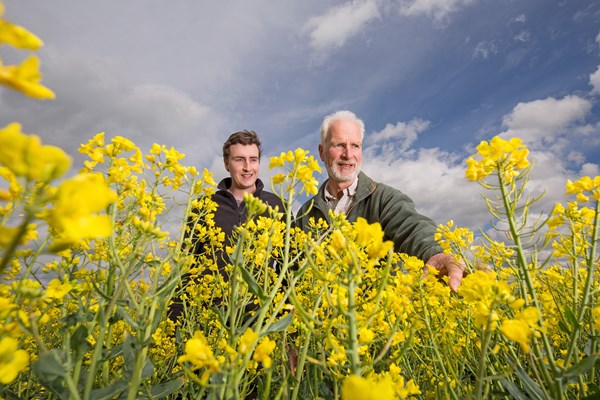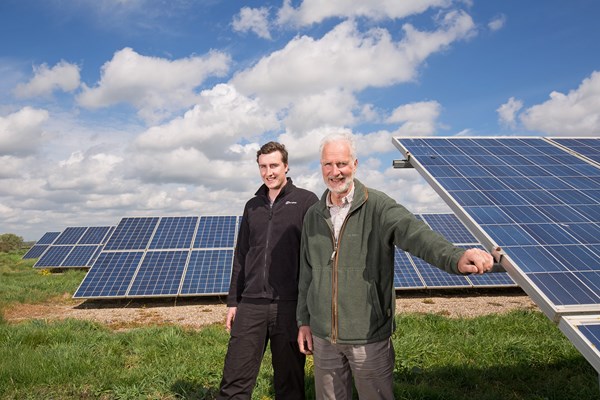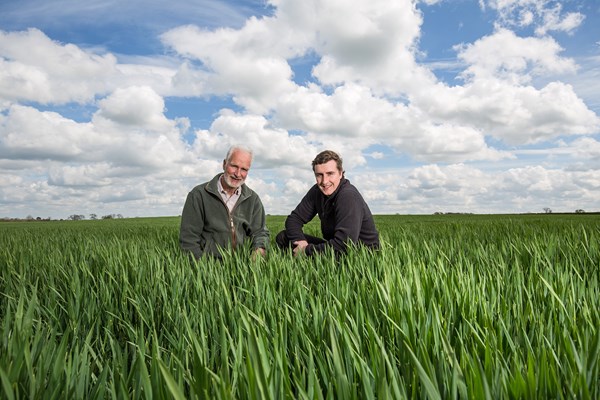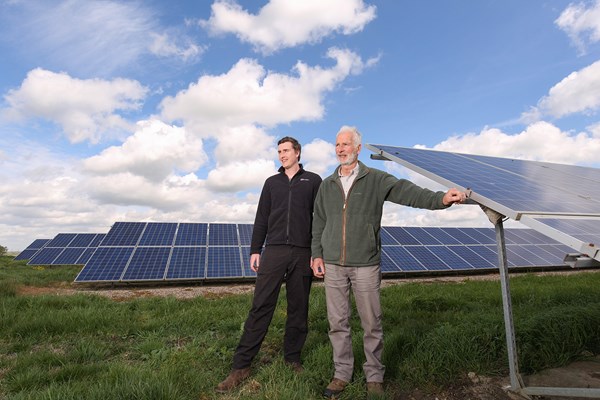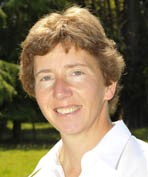- Home
- Projects
- Farm Excellence
- Vale of Belvoir Monitor Farm
Vale of Belvoir Monitor Farm
About Vale of Belvoir Monitor Farm
- Sherwood Farms became a Monitor Farm in May 2019
- 560 ha arable area with increasingly flexible arable rotation includes winter wheat, winter oilseed rape, winter barley, spring barley, winter beans, winter triticale and spring linseed
- The farm is also home to 72,000 laying chickens, a mixture of free range and colony
- Soils range from heavy clay to clay and sandy loam
Father and son team James and Michael Parker farm at Sherwood Farms in the Vale of Belvoir, Leicestershire. Their soils range from heavy clay to clay and sandy loam. James and Michael’s 560 ha arable rotation includes winter wheat, winter oilseed rape, winter barley, spring barley, winter beans, winter triticale and spring linseed.
Sherwood Farms is also home to 72,000 laying chickens, a mixture of free range and colony. The eggs are packed and sold on-site. Both James and Michael want to increase the efficiency of their business and produce crops as economically as possible.
Before becoming monitor farmers, James and Michael planned rotations in response to the different land types they have and the pressure from specific weeds. A min-till system was already in place and they hope to work towards semi-controlled traffic over the coming years.
James and Michael are looking forward to comparing their business with other farmers facing similar challenges and identifying where improvements can be made. Tackling black-grass and flea beetle by altering drill dates was one of the avenues of investigation identified at the outset of the Monitor Farm, along with other focuses which can be found in the launch meeting report.
Vale of Belvoir Monitor Farm will come to a close in 2023.
Past meetings and updates
Making the most of soil biology - 23 February 2023
In the final winter Monitor Farm meeting at the Vale of Belvoir, Tim Parton visited to discuss his approach to regenerative agriculture and the work he has been doing on his farm over the past decade.
Is farming profitable and what are the options? - 19 January 2023
Early in 2023, James and Michael were visted by Stephen Briggs (Abacus Agricultural Consultants), Chris Walsh (NFU Mutual) and Sarah Baker (AHDB).
The meeting covered farm profitability, business resilience and diversification with agroforestry as an example.
A fresh look at crop nutrition – 1 December 2022
James and Michael invited independent advisor and researcher Niels Corfield. Niels' work aims to create agroecological landscapes and farms in the UK and Europe. Niels talk was focussed on systems that are low maintenance and productive, covering topics including biostimulants, nutrient lock-up and trees as part of the arable rotation.
AHDB has more information on biostimulants and an overview of crop nutrition related research
Soil problem solving – 3 Novemeber 2022
Independent soil scientist Neil Fuller discussed problem soils and possible solutions. AHDB's information and resources on soils can all be found via the GREATsoils homepage.
Summer walk – 28 June 2022
In the summer meeting at the end of June, Monitor Farmer hosts James and Michael Parker gave a farm update which included cropping, machinery, current challenges and plans for the coming year. During the farm walk the group discussed the range of crops in the rotation, soils and establishment. Amongst the numerous other discussion points were comparison of drills, drilling dates, nitrogen rates and timing, biostimulants, dealing with blackgrass, and environmental management schemes.
If you would like to be included in the email invite list for future meetings, contact judith.stafford@ahdb.org.uk or alternatively call on 078915 56623.
How to get the most from your fertilizer – 24 February 2022
Sarah Kendall (ADAS) gave practical advice on how to respond to increasing fertilizer costs, how to optimise N use and maximise efficiency, and tools for monitoring crop nutrition strategies.
Adam Driver discussed how his family business farms with a long term view based around resilience, sustainability and caring for the environment on both their own land and land they manage for others.
Look for opportunities to adjust your own nitrogen rates using the AHDB Nitrogen fertiliser adjustment tool.
Changing your drilling system – 27 January 2022
Back in January 2022, James and Michael were in the process of changing their system of establishment to no-till. AHDB’s Harry Henderson was on hand to discuss with attendees what they need to bear in mind when making a similar change to their own businesses.
Carbon: Prepping for net zero – 9 December 2021
This meeting aimed to answer questions on carbon. Discussion was be led by Sarah Wynn, Technical Director for Climate Change and Sustainability at ADAS, a leading national authority on Net-Zero, carbon footprint assessment and benchmarking in agriculture.
Managing the environment for better returns – 11 November 2021
The first meeting of the 2021/2022 winter season will look at practical and profitable options in existing and upcoming stewardship schemes. Discussions also included Farming Rules for Water, NVZs, nutrient management planning and carbon.
Soils and cultivation – 5 March 2020
Past cultivation policy at Sherwood Farms:
- Plough based, followed by power harrow
- Followed by a Simba Toptilth, then drilled with a conventional tine drill
- Moved to a set of Simba 23C discs with a press towed behind
- Usually, two passes per year followed by a conventional tine drill
Current cultivation practices:
- Two light cultivation passes, 2-3cm depth, using a Sumo Mixidisc
- Cambridge roll
- Leave undisturbed 3 weeks prior to drilling
- Drill with minimal disturbance using an Amazone Cayena
- Mole plough heavy land every 4-5 years
In addition to discussing cultivation regimes on the farm, extensive and informative talks regarding soil health and cultivation strategies were given, the full accounts of which can be found here: VoB Monitor Farm Soil & Cultivations Meeting Report | AHDB
Crop nutrition – 16 January 2020
Discussions took place on how improving soil health can reduce the amount of external nutritional inputs needed. This is particularly relevant as the farm has a significant spend of cereals nutrition.
Past nutritional inputs at Sherwood Farms included:
- Manganese being added to deficient areas – saw an increase in leaf area
- Manganese and Magnesium have been added every year since then
- Phosphites being added to aid winter rooting
- Biostimulants being used although their contents were unknown
Previous tissue testing analysis indicated low Phosphorus levels despite levels in soil being high, this was the same with Potassium.
James and Michael aim to create a crop nutrition programme and have had their soils tested in two contrasting fields in November 2019.
Full details of the meeting can be found in the VoB Monitor Farm Crop Nutrition Meeting Report.
Cover crops and spring cropping – 12 December 2019
Dorset farmer John Martin spoke about his experience moving to spring cropping and implementing cover crops. The take-home messages were:
- A high number of species in the mix will increase benefits - 6 or 7 should do the trick
- Different species will bring different benefits i.e. keeping the rain off the soil or breaking up compacted areas
- Cover crops are an investment - don't expect to see immediate returns
The black-grass challenge - 14 Novemeber 2019
Dick Neil (Hutchinsons) and former Monitor Farm host John Cossins reviewed plans for the Monitor Farm and discussed dealing with pressure from black-grass.
+ See more





